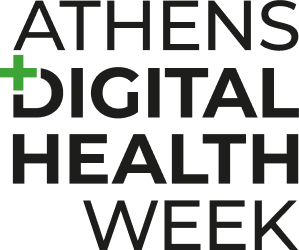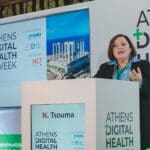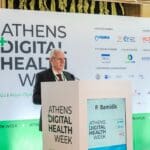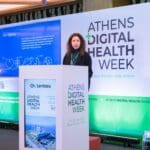The Athens Digital Health Week 2025 (ADHW 2025), which lasted from Monday 27 to Friday 31 January, was a great success. The Week was organised by the National e-Health Authority (NeHA) of Cyprus and by IDIKA SA (Social Security e-Governance) of Greece and was held under the auspices of the Ministers of Health of Cyprus and Greece and the Greek Minister of Digital Governance. The event, held for the second year, is hosted in Athens by HL7 Hellas.
The European Commission was represented by DG-SANTE, and the World Health Organization (WHO) was represented by the Head of the Office on Quality of Care and Patient Safety in Athens, João Breda. The event was also attended by the Greek Minister of Health, Adonis Georgiadis and the Deputy Minister of Health, Eirini Agapidaki. The Cypriot Minister of Health, Michalis Damianos, in his address, stressed that in cooperation with the National e-Health Authority, in view of the Cyprus Presidency of the Council of the European Union in the first half of 2026, specific priorities have been set in the field of Digital Health to promote the expansion of the European Health Union, focusing on the strengthening and interoperability of the EU’s health systems. Moreover, he underlined, the completion of the Xt-EHR Joint Action project in April 2026, coordinated by Cyprus, will be a key milestone for Europe.
The Chairs of the Organising Committee, Niki Tsouma, CEO of IDIKA SA, Panagiotis Bamidis, Professor of Medical Physics, Informatics and Medical Education, Director of the Medical Physics Laboratory of the Aristotle University of Thessaloniki and President of HL7 Hellas, and Christos N. Schizas, Professor of Artificial Intelligence, former President of the National e-Health Authority of Cyprus, opened the conference. The opening lecture of the event was then given by Prof. Schizas on “European Health Data Space Regulation and the Road to the European Health Union”, during which he referred to the recent adoption of the Regulation by the EU Council and the European Parliament, with Member States being required to incorporate it into their national legislation by 2027.
The premier networking event, which attracted experts on innovation in digital health services from most countries in Europe, made an important contribution to the debate on digital health transformation and its challenges, focusing on the implementation of the new European Health Data Space Regulation and reiterated the promise of more efficient health systems for the benefit of the health of society and the economy. The fruitful interaction between flagship initiatives and projects in alignment with the European Union’s Digital Innovation Strategy is what sets the Athens Digital Health Week apart. Many European projects met, experiences were presented and opportunities for new partnerships were created.
Important European projects featured
During the Athens Digital Week, sessions were dedicated to important European projects, such as the Xt-EHR (Extended EHR@EU Data Space for Primary Use) coordinated by Cyprus through the National e-Health Authority, and Professor Christos N. Schizas.
Xt-EHR led the High-Level EHDS Summit, kicking off with an inspiring Plenary Session chaired by Christos N. Schizas, Xt-EHR Coordinator. The session featured keynote speeches from Fulvia Raffaelli (DG SANTE) on “Building the EHDS Vision: Unlocking Opportunities, Addressing Challenges” and Chrysoula Lentzou (HaDEA) on “HaDEA Supporting the Implementation of the European Health Data Space.” The summit concluded with a dynamic High-Level Panel Discussion, moderated by Alexander Berler, where leading experts from Austria, Italy, Ireland, France, Cyprus, Malta, Hungary, and Portugal explored EHDS opportunities and challenges. The discussion emphasized the critical role of interoperability, data governance, and practical implementation across Europe. Panellists shared valuable insights on how to unlock the full potential of EHDS for a more connected and efficient healthcare system.
In a series of interactive sessions entitled “EHDS Experimentation Lab” participants with technical backgrounds (programmers, system architecture experts) had the opportunity to “experiment” with the products of European projects in development, such as Gravitate-Health and xShare, while the EEHRxF Ask the Expert session—co-chaired by Xt-EHR—focused on the implementation of the EEHRxF framework and its technical specifications.
In the EHDS Industry Forum, experts shared their perspectives on the role of industry players in driving EHDS adoption. With the support of IHE-Europe, HL7 Hellas and Xt-EHR Joint Action, this collaborative session focused on vendor-driven insights and the path to a commonly accepted approach for EHDS adoption.
The framework for the implementation of the EEHRxF (European Electronic Health Record Exchange Format) will be defined and proposed by Joint Action Xt-EHR during the Cyprus Presidency of the Council of the EU. EEHRxF is the European Electronic Health Record Exchange Format. It is a set of specifications—currently under development—that defines how electronic health records can be exchanged securely and interoperably between the Member States of the European Union. At a session on Xt-EHR vision on an HCP friendly EHR, Professor Theodoros Kyprianou also presented the proposal of the National e-Health Authority for the integrated health record of Cyprus.
Focusing on the development of human resources for the needs of the digital transformation in health in Europe, the ManagiDiTH project was presented, a postgraduate programme for the management of digital transformation of health. The presentation of the overall curriculum was made by the Scientific Manager of the Programme, Professor Panagiotis Bamidis, while the needs that led to its creation were discussed, as well as the opinions of the students who are already attending it with great enthusiasm.
The Athens Digital Health Week was strongly attended and focused on Citizens/Patients and their rights under the new Regulation. In the round table session organised by the Xt-EHR project, Petra Wilson, HIMSS Europe, spoke on the legal side of the “EHDS Regulation interpreting Patient rights”, while patients were represented by associations from Cyprus (Cyprus Federation of Patients’ Associations, CyFPA) and Greece (Hellenic Cancer Federation, ELLOK), Rare Diseases Greece, and Greek Patients Association). Former MEP Stelios Kympouropoulos also participated in the discussion.
Two days focused on Digital Health in Greece
IDIKA SA organised a series of open sessions, the first of which being on the Digital Transformation of Healthcare in Greece. The President of IDIKA SA, Ioannis Karagiannis, addressed the conference and praised the work and contribution of the CEO of IDIKA SA, Niki Tsouma.
The potential offered by artificial intelligence in the development of a new generation of services for the healthcare sector and the role of IDIKA SA in the digital transformation of healthcare were analysed by the company’s CEO, Niki Tsouma. She noted, in particular, that the main priorities for IDIKA SA in the current period are the development of reliable and interoperable systems in hospitals and the availability of an electronic health record with the complete medical history of the citizen, with any treatments and therapies they have received.
Fascinating were the sessions where IDIKA SA presented undertakings on primary use (such as the hELLENic heAlth@eu, a project on the expansion of cross-border health services through the National Contact Point for Digital Health and EUVAC) and secondary use of health data (TEHDAS2, GR-HDAB & xShare projects). The Ministry of Health of Greece participated with an informative talk on the framework of secondary health data at national and European level, and presentation of the HDAB project for Greece. Of particular interest was the interactive session moderated by Ms. Elpida Fotiadou (IDIKA SA), which included a discussion between healthcare professionals and citizens, who presented their ideas and needs for the development of the Electronic [Personal] Health Record (EHR) for Greece.
Artificial Intelligence was the subject of more than one session at the ADHW 2025. On the role of AI in healthcare, distinguished speakers covered the multiple issues raised by the introduction of AI, such as in research, the regulatory framework, in terms of data security, new technological tools in medicine, and the position of patients. All speakers agreed that collaboration between technology companies, healthcare professionals and, of course, regulators to address ethical and moral issues that may arise will be critical for the effective and safe integration of AI in healthcare.
On the last day of ADHW, the baton was passed to HL7 Hellas, which organised sessions on the Future of Digital Transformation in Greece, in the era of the European Health Data Space Regulation, looking ahead to 2030. The session entitled “Greece 2030” set out the basic principles and conditions for the digital strategy of the next five years. The keynote speech was delivered by Dr Alexander Berler as Vice Chair of HL7 Hellas. In the session participated representatives from the Federation of Hellenic ICT Enterprises (SEPE), the Institute of Computer Science of the Foundation for Research and Technology – Hellas (ICT – FORTH), the Hellenic Health Informatics Association (HHIA), HL7 Hellas, IDIKA SA, and the Hellenic Cancer Federation (ELLOK).
The Secretary General of Strategic Planning for the Ministry of Health, Aris Angelis, and attorney Ioanna Michalopoulou from HL7 Hellas, spoke about the Greek Legal Framework for EHDS Harmonisation and the legal challenges and opportunities created in the era of EHDS.
Also, in the context of the Athens Digital Health Week, HL7 Hellas took a decisive step toward healthcare interoperability by formally establishing the HL7 Hellas FHIR Workgroup, which aims to create and continuously develop the Greek HL7 FHIR Core, in line with international and European standards. During the sessions, the latest developments in the HL7 FHIR standard were presented, while valuable expertise was gained from similar efforts to create FHIR Implementation Guides and Workgroups in other countries. HL7 Hellas is committed to continuing its education and support activities for healthcare professionals, technology companies and policy makers, ensuring that Greece can lead the digital transformation of the healthcare sector, as stated by its President, Professor Panagiotis Bamidis.
The Hellenic Society for Biomedical Technology (ELEVIT) hosted a Symposium, that addressed key challenges and explored future directions in the rapidly evolving field of biomedical technology. Experts from academia, healthcare, and industry were brought together to explore the latest advancements in artificial intelligence (AI), medical devices, and digital health technologies. A diverse range of topics were covered: the design, development, evaluation, and certification of innovative medical devices and AI applications in healthcare; the trustworthiness of AI in medical decision-making; advances in biomedical imaging; the potential of bio-inspired medical technologies; recent breakthroughs in brain-computer interfaces; the convergence of AI and nanomedicine; the role of mHealth, telemedicine, and machine learning in musculoskeletal disease prevention, with a focus on the SCOLIOSIS project.
Sessions focused on European projects
A dedicated session at ADHW2025 discussed how to bridge the gap in cancer care, which is one of Europe’s biggest challenges. From early diagnosis to equal access to cutting-edge treatments, inequalities persist across countries – but the potential for change is growing over time. By presenting a series of nationally significant projects (Joint Actions) such as eCAN/eCAN Plus, researchers demonstrated how policies, telemedicine innovations and prevention strategies can be aligned to close the gap of unequal access, tapping on the power of collaborative knowledge.
The future of dementia care was explored by scientists from various institutions in a session that shed light on aspects of the path towards a holistic, person-centred care, moderated by Professor Panagiotis Bamidis. The event was held as part of the COMFORTage project, a pioneering European initiative that harnesses real-world data, artificial intelligence and citizen science to transform dementia and frailty care. The value of Citizen Science and Living Labs was also presented, highlighting their crucial role in community-driven solutions, as well as in education and digital literacy. Finally, experts in the field explored building an “Ageing-EHDS,” integrating the European Health Data Space into dementia research.
An event was also organised by the Municipality of Palaio Faliro and the Region of Peloponnese to present the progress of Project SmartBear – Evidence-based Personalised Support for Healthy and Independent Living at Home. Successful strategies, preliminary results and experiences from the Greek Smart Bear Pilot were presented, as well as the Palaio Faliro Declaration that boils down to the message “Leaving No Older Person with Chronic Diseases Behind in The Digital Health Era.”
The EUVAC project, an ambitious initiative aimed at developing the European Digital Vaccination Card, was officially launched during Athens Digital Health Week 2025. The project, which will be integrated into the MyHealth@EU network, aims to facilitate the secure exchange of vaccination data across European member states. It will ensure that citizens receiving medical treatment in another EU country can have their vaccination records readily accessible to healthcare professionals, leading to more informed and efficient care. Key stakeholders attended the meeting, including representatives from HADEA (European Health and Digital Executive Agency), EU Project Officer Katarina Krepeľková joined online and Chrysoula Lentzou participated onsite.
smartHEALTH EDIH and the Hellenic Digital Health Cluster (HDHC) organized two impactful sessions that showcased the future of digital health in Greece. smartHEALTH, the European Digital Innovation Hub for Smart Health, supports SMEs, startups, mid-caps, and the public sector in leveraging digital technologies to advance precision medicine, e-health services, and public sector transformation. The smartHEALTH EDIH is co-funded by Digital Europe Programme and Competitiveness Programme 2021-2027. Alongside smartHEALTH, HDHC founded in March 2021 through the collaboration of FORTH and leading innovative organizations, is dedicated to enhancing the innovation capacity, development, and global presence of its members, aiming to establish Greece amongst the leaders in digital health. The two panels, “SMEs and Startups – Success Stories and Pathways to Growth” and “Healthcare Providers – Navigating Digital Transformation,” reflected the shared mission of smartHEALTH and HDHC to drive collaboration, foster digital transformation, and promote innovation within the Greek and European health ecosystems.
IHE-Europe, just like last year, contributed to discussions on interoperability and the advancement of digital health standards during several sessions at Athens Digital Health Week 2025. In the Medical Imaging session, aimed at enhancing participants’ understanding of the latest advancements and applications in medical imaging within the digital health landscape, topics covered included the integration of imaging data into electronic health records, interoperability standards specific to imaging, and the role of artificial intelligence in image analysis. IHE-Europe facilitated industry groups that presented jointly formulated recommendations on the EHDS, focusing on testing scaling, interoperability architecture and EHR system definitions. In this context, the IHE Testing Tools for EHDS & EEHRxF session, designed to ensure compliance and interoperability within the EHDS framework and the European Electronic Health Record Exchange Format (EEHRxF), were showcased. These tools are essential for healthcare providers and vendors to implement interoperable solutions across Europe.
The Athens Digital Health Week also hosted closed meetings organised by the event’s partner agencies, such as, IHE- Europe, the Xt-EHR project, the new European projects MyHealth@MyHands & i2X – Intelligent Implementations of the European EHR Exchange Format, XiA, SUSA, among others.
ADHW 2025 in numbers
The event was attended by 440 participants (healthcare professionals, IT scientists, etc.), 28 European partnering projects from EU Member States and Norway, 13 organisations/agencies, and speakers from 19 countries.
The Athens Digital Health Week is a meeting point for European organisations, European projects, and projects implemented in Greece through the Recovery and Resilience Facility or national resources, and experts in the digital transformation of health services, that enhanced interaction and exchange of know-how.
